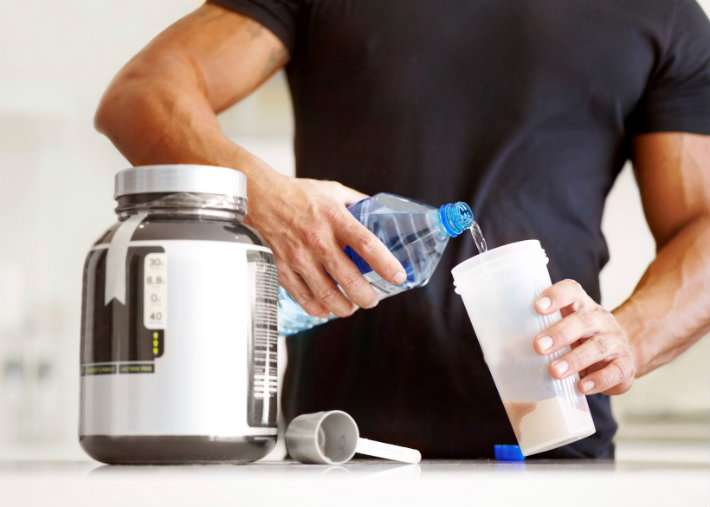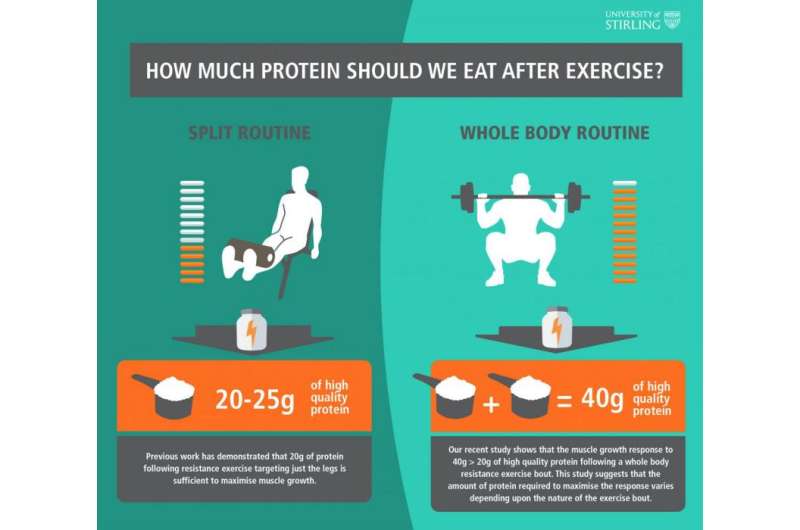Scientists challenge recommendation that men with more muscle need more protein

Sports nutrition recommendations may undergo a significant shift after research from the University of Stirling has found individuals with more muscle mass do not need more protein after resistance exercise.
Health and exercise scientists from Scotland's University for Sporting Excellence found no difference in the muscle growth response to protein after a full body workout between larger and smaller participants.
Kevin Tipton, Professor of Sport, Health and Exercise Science in the Faculty of Health Sciences and Sport, said: "There is a widely-held assumption that larger athletes need more protein, with nutrition recommendations often given in direct relation to body mass.
"In our study, participants completed a bout of whole-body resistance exercise, where earlier studies - on which protein recommendations are based - examined the response to leg-only exercise. This difference suggests the amount of muscle worked in a single session has a bigger impact on the amount of protein needed afterwards, than the amount of muscle in the body."
Experts also found participants' muscles were able to grow and recover from exercise better after a higher dose of protein.
Consuming 40 grams of protein after exercise was more effective at stimulating muscle growth than 20 grams. This increase occurred irrespective of the size of the participants.

Professor Tipton continued: "Until now the consensus among leading sports nutritionists, including the American College of Sports Medicine and the British Nutrition Foundation, is that weightlifters do not need more than around 25 grams of protein after exercise to maximally stimulate the muscle's ability to grow.
"In order for nutritionists to recommend the correct amount of protein we first need to consider specific demands of the workout, regardless of athletes' size. This throws commonly held recommendations into question and suggests the amount of protein our muscles need after exercise may be dependent on the type of workout performed. These results are limited to younger, trained men so we may see different results with other groups, such as older individuals or females digesting different amounts of protein."
Young, resistance-trained males were recruited for the study and divided into two groups, one with lower lean body mass of less than 65 kilograms and one with higher lean body mass of more than 70 kilograms.
Each volunteer participated in two trials where they consumed protein after resistance exercise. In one trial participants consumed 20 grams of whey protein and in the second, they consumed 40 grams of whey protein after exercise. Scientists measured the muscle's ability to grow at an increased rate with metabolic tracers and muscle biopsies.
More information: Lindsay S. Macnaughton et al. The response of muscle protein synthesis following whole‐body resistance exercise is greater following 40 g than 20 g of ingested whey protein, Physiological Reports (2016). DOI: 10.14814/phy2.12893














